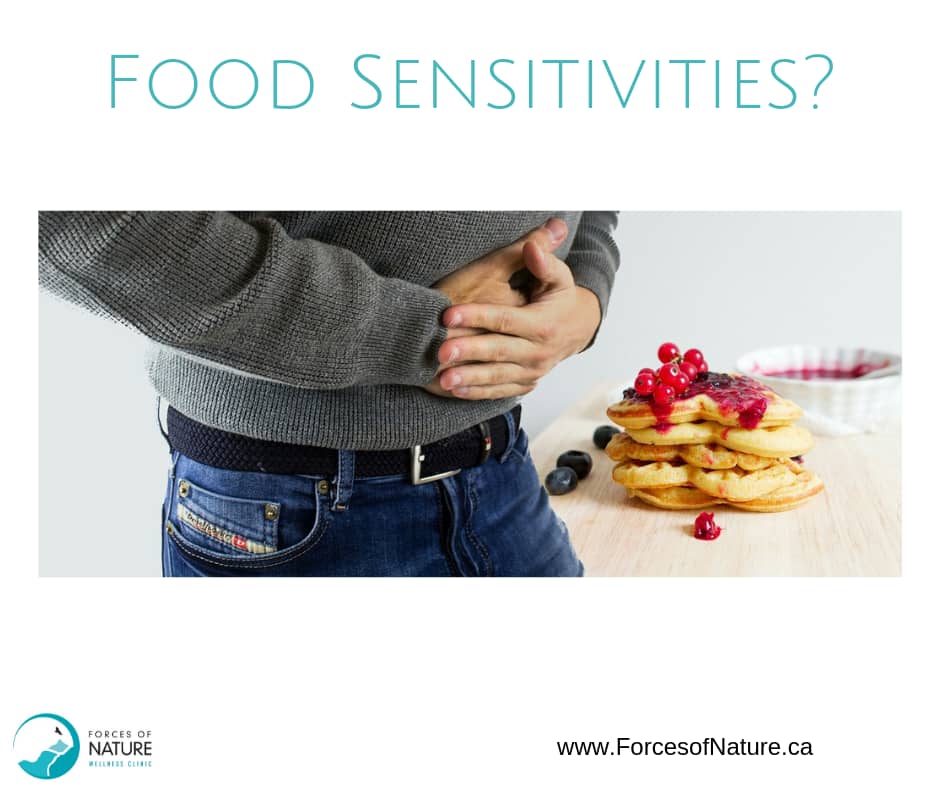
How to Restore Balance to Your Life
Are you feeling burnt out and overwhelmed? You’re not alone. Let’s face it: We’re all busy, dealing with endless to-do lists and struggling to balance it all. The result is often a day-to-day life that feels too hectic. We feel pulled away from the things that really matter most. We may have even forgotten what those things are!
Many people find their way to our wellness clinic at a point in their lives where they feel compelled to take charge of their well-being before it gets even further out of control. Sometimes they’re experiencing health problems that they just can’t shake. Some have symptoms but no one can figure out what is wrong with them. Others are ready to take their health to the next level because they know that their health is their greatest asset. By seeking the kind of holistic help all of our wellness experts provide, they’re claiming ownership of their current and future health.
A Fork In The Road
The inescapable truth is that good health is vital to living a rich and meaningful life. Fortunately, our bodies let us know when we’re jeopardizing our present and future health by giving us warning signs in the form of unpleasant symptoms. However, many of us don’t listen to those signs or we try to cover them up with band-aid solutions and carry on. This propels our health even further down a slippery slope.
Here’s a key fact: Disease doesn’t develop overnight. It often begins when we’re out of balance and burnt out. We need to pay attention to the warning signs before they escalate into something much worse.
Five Signs That Your Body Is Out Of Balance
You Feel Incredibly Stressed
We all feel stressed from time to time. Some stress is actually beneficial to motivate us to get things done. However, chronic stress leads to many health issues, including muscle pain, fibromyalgia, chronic fatigue, cardiovascular and digestive issues, hormonal imbalance, depression, anxiety, and low immune system function.
From a survival standpoint, the “fight or flight” response produced by stress hormones like cortisol and adrenaline makes sense. By putting your body into overdrive, those hormones help you physically if you are in danger. For example, when our ancestors were under attack by a predator, the fight or flight hormones helped them fight back or escape. However, in today’s world, stress tends to be more mental or emotional than physical, and more chronic than acute. As a result, your hormone levels end up way out of balance.
Irritability and Mood Swings are Signs of Burnout
Are you ready to fly off the handle at any moment? Do the things that used to make you laugh now irritate you? You could have an imbalance in the neurotransmitters that affect your moods, such as serotonin or GABA. Changes in estrogen, progesterone and testosterone levels and thyroid hormone imbalances also lead to irritability.
You are Experiencing Sleep Disturbances: Difficulty Falling or Staying Asleep
Sleep problems can become a vicious cycle. We need sleep to refresh our minds and restore balance, but when our bodies are out of balance, it is difficult to sleep well. If you toss and turn for hours, or wake up in the night with your mind racing, it may be time to listen to your body and start practicing better sleep hygiene.
Following these steps to improve sleep resolves most issues:
- Maintain a regular bedtime, try to go to bed by 10 p.m.
- Shut down electronic devices by 8 p.m. and keep them out of your bedroom
- Keep your bedroom cool, quiet and dark. Invest in blackout curtains.
- Avoid eating for at least 2 hours before bed
- Avoid sugar and alcohol in the evening. These destabilize your blood sugar at night. The resultant dips in blood sugar wake you up in the night or keep you in a light, restless sleep.
- Do something that relaxes you in the evening. Read a book. Have a bath. Knit.
- Have a little protein (eggs, fish, nuts/nut butter) before bed. These help to stabilize your blood sugar to help you get to sleep, get into a deeper sleep and stay asleep longer.
- Balance your hormones. Hormone balance is crucial to good quality sleep.
Your Body is Changing and you Can’t Figure Out Why
Many patients experience mysterious symptoms that can’t be explained by conventional medicine. These symptoms may include rapid, unexplained weight gain, debilitating fatigue, and skin problems. Weight gain is a common symptom of imbalance. If you find you’ve gained weight without any change to your lifestyle, your body might be telling you that it’s out of balance. Similarly, unexplained fatigue or sudden acne (long past the teen years) are symptoms you shouldn’t just ignore.
There is an explanation for symptoms like these. If you’re being told it’s “just stress“, our naturopaths will dig deeper to get to the root cause of your problem.
You Rely on External Substances to “Manage” Life
If you feel like you can’t make it through the day without your morning coffee, mid-morning macchiato, and afternoon pumpkin spice latte and muffin, ask yourself what purpose those caffeinated drinks and sugar are serving. Relying on a substance, be it sugar, caffeine, or even alcohol, marijuana or cigarettes is not a sustainable way of coping with life’s difficulties. The short-term boost they provide soon gives way to imbalance and disease. It’s important to seek help to nip these habits in the bud.
Does anything on that list sound familiar? If so, you’re not alone! Feeling overwhelmed is often the result of our natural instinct to try to do everything or please everyone. The good news is that there’s a better way.
Recovering From Burnout: How To Bring Your Health Back Into Balance
How can you start the process of restoring balance? When you’re feeling overwhelmed, it may seem like a daunting task. But, it’s simpler than you might think.
Step One. Prioritize What’s Really Important.
What matters most to you? Chances are that it’s not the housework, what’s happening on Instagram, your emails, buying a nicer couch, or any of the other things that take up space on your to-do list. Ultimately, for most of us, the important things are more intangible: our health, relationships, and family. In order to prioritize the things that matter, we need to put self-care at the top of our to-do list. Simply put, we can’t devote energy to the truly important things or people if we’re not looking after ourselves.
Interestingly, many people find that when they adjust their priorities, the other things cease to feel like such a struggle. It may seem like a bit of a paradox, but when we look after ourselves, everything else in life just falls into place.
If you want to reconnect with your priorities and figure out what really matters, mindfulness meditation helps. You can also try journaling. Writing down your thoughts is a great way to sort them out. In fact, writing down your emotions can be the outlet you need to ease the harmful physical effects of stress. Remember to include what you are thankful for in your journal. Take time for expressing gratitude daily. Studies show that higher levels of gratitude are associated with higher levels of subjective well-being.
Three vital self-care tips
- Take time to make healthy meals. Then take the time to sit down together with friends and family to enjoy them. Meal prep on Sundays with a meal prep menu so that making a healthy dinner isn’t rushed at the end of a long work-day.
- Schedule time with your wellness team and explore all of your health options. Why not try someone new? Have you ever seen an osteopath? A psychotherapist? An acupuncturist? A chiropractor? A naturopath? Why not have all hands on deck to optimize your health?
- Fit exercise into your busy schedule. Get up earlier to workout, take stairs, walk, take transit instead of taking the car. Taking the TTC builds exercise into your day by walking more and taking stairs and helps our environment too.
Step 2: Prioritize Down-time
Despite having busy lives, our bodies need a certain amount of downtime every day. If you are working all day, doing chores in the evening, answering email until you go to bed, your body doesn’t get the time it needs to recover. Disconnect from your devices and make a point of relaxing from 8 p.m. until you go to bed, every night. Get a full 8 hours of good quality sleep every night.
Step 3: Get the Right Nutrition
When you are constantly on the go and under pressure, your body’s demand for certain vitamins and minerals increases. Coping with stress necessitates adequate stores of vitamin C, vitamin B5, vitamin B6, magnesium and zinc. Good food sources of vitamin C include citrus fruits, kiwi, berries, peppers, and melons. Foods rich in vitamin B5 include mushrooms, eggs, salmon, beef, chicken, turkey, sunflower seeds, pork, sweet potato, and avocados. Vitamin B6 is found in foods like salmon, chicken, beef, pork, avocados, sweet potato, and pistachios. Magnesium-rich foods include dark, green leafy vegetables like kale, spinach, Swiss chard, and beet greens, as well as seeds, beans, nuts, fish and chocolate. Zinc is abundant in egg yolks, beef, shellfish, and pumpkin seeds.
The amount of these vitamins and minerals that you need under stress may be more than you can provide through diet alone, however. In that case, supplementation with good quality vitamins and minerals becomes vital.
Step 4: Recognize Where you Need Help and Ask For It
This step can be hard for many people. After all, as adults, we’re supposed to be self-sufficient, right? However, consider this: Many highly successful people have help. Athletes have health and fitness coaches; musicians have teachers; many business owners have mentors. And they often credit their success to that support and guidance.
The real strength is in identifying the areas of your life that feel out of control or could be better, and admitting that you could do with a helping hand. Then finding the right person to guide you in that area.
A good first step is to book a thorough review of your health and wellness status with your Naturopathic Doctor. We’re here to help you better understand where these feelings of overwhelm and troublesome symptoms are coming from. We’ll give you the tools that you need to find balance again. We can also direct you to the other healthcare practitioners that would be most beneficial for you.
Functional testing is available to remove the guesswork. Tests identify any possible underlying physical issues, such as hormonal imbalances. This holistic approach allows us to support you with an effective plan of action for your health and well-being that’s tailored specifically to you.
If you are ready to dive deeper into your health and rebalance your life, give us a call at 416-481-0222!
Authored By Dr. Pamela Frank
References
https://www.sciencedaily.com/releases/2012/04/120402162546.htm
https://www.psychologytoday.com/us/blog/raising-happiness/201609/9-ways-ease-overwhelm


